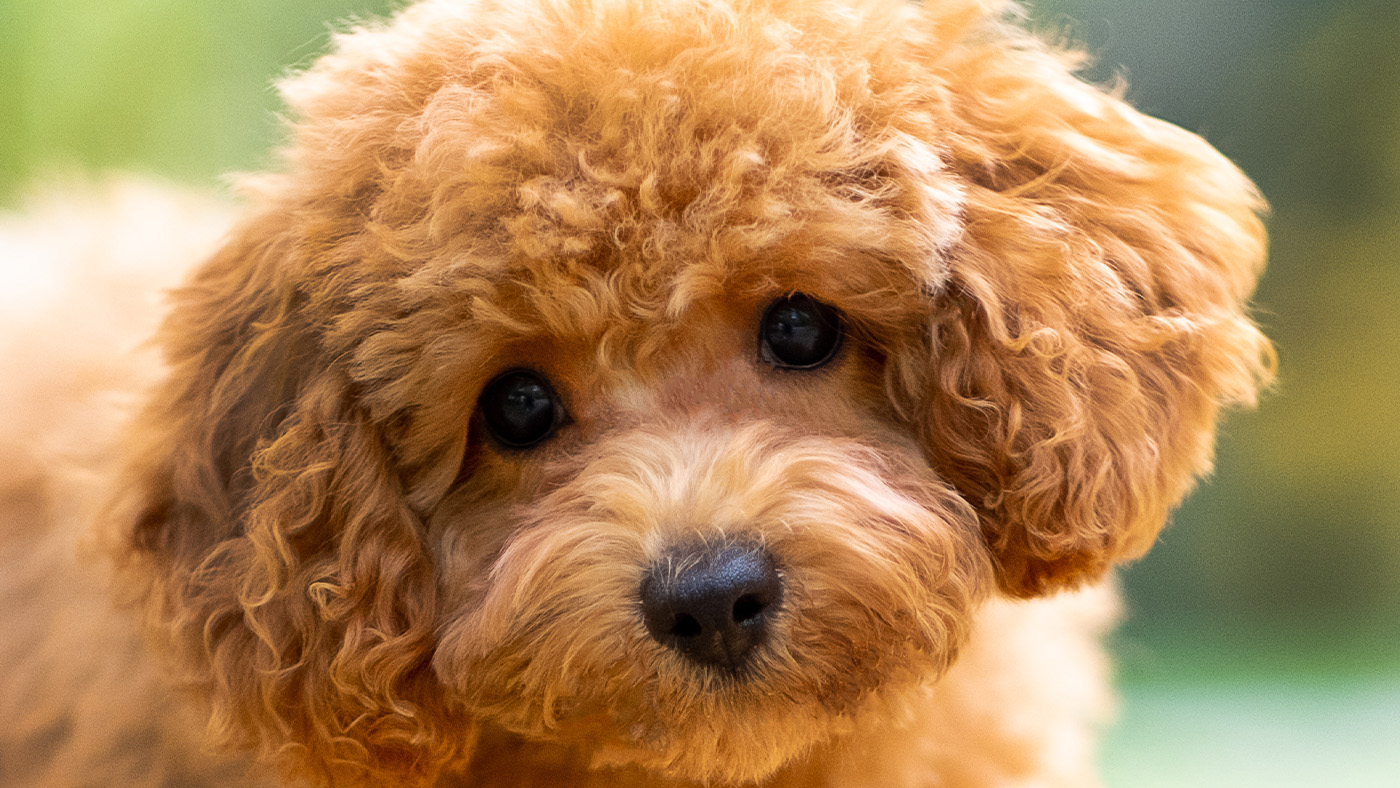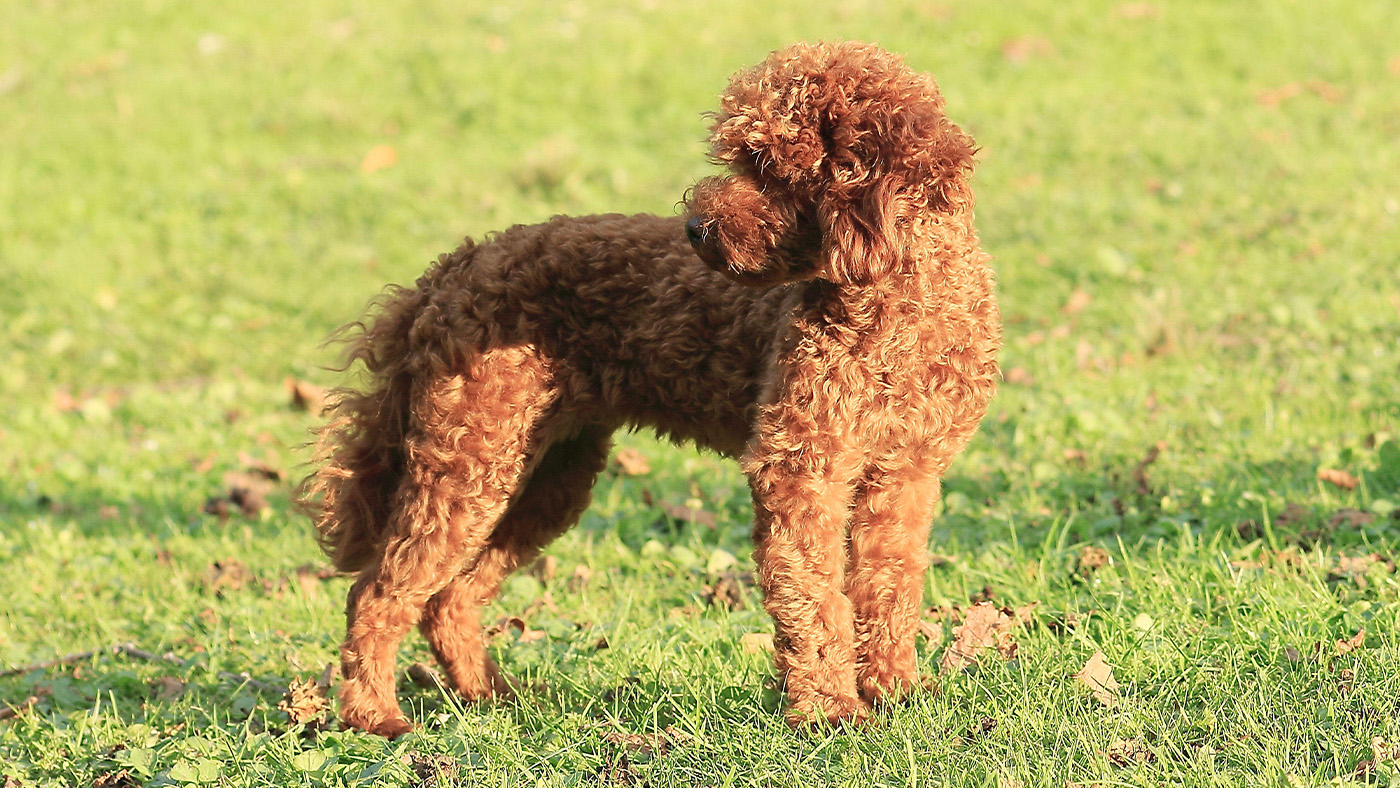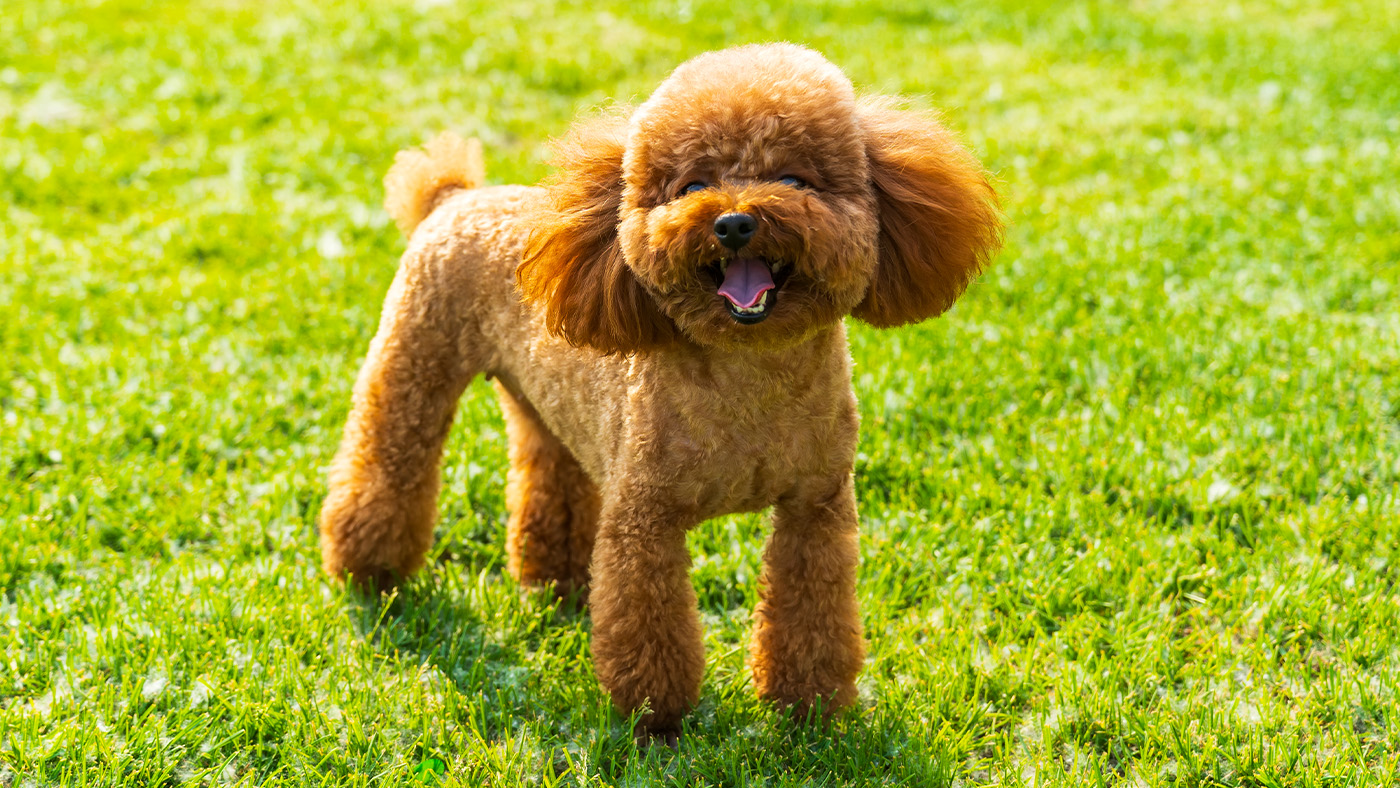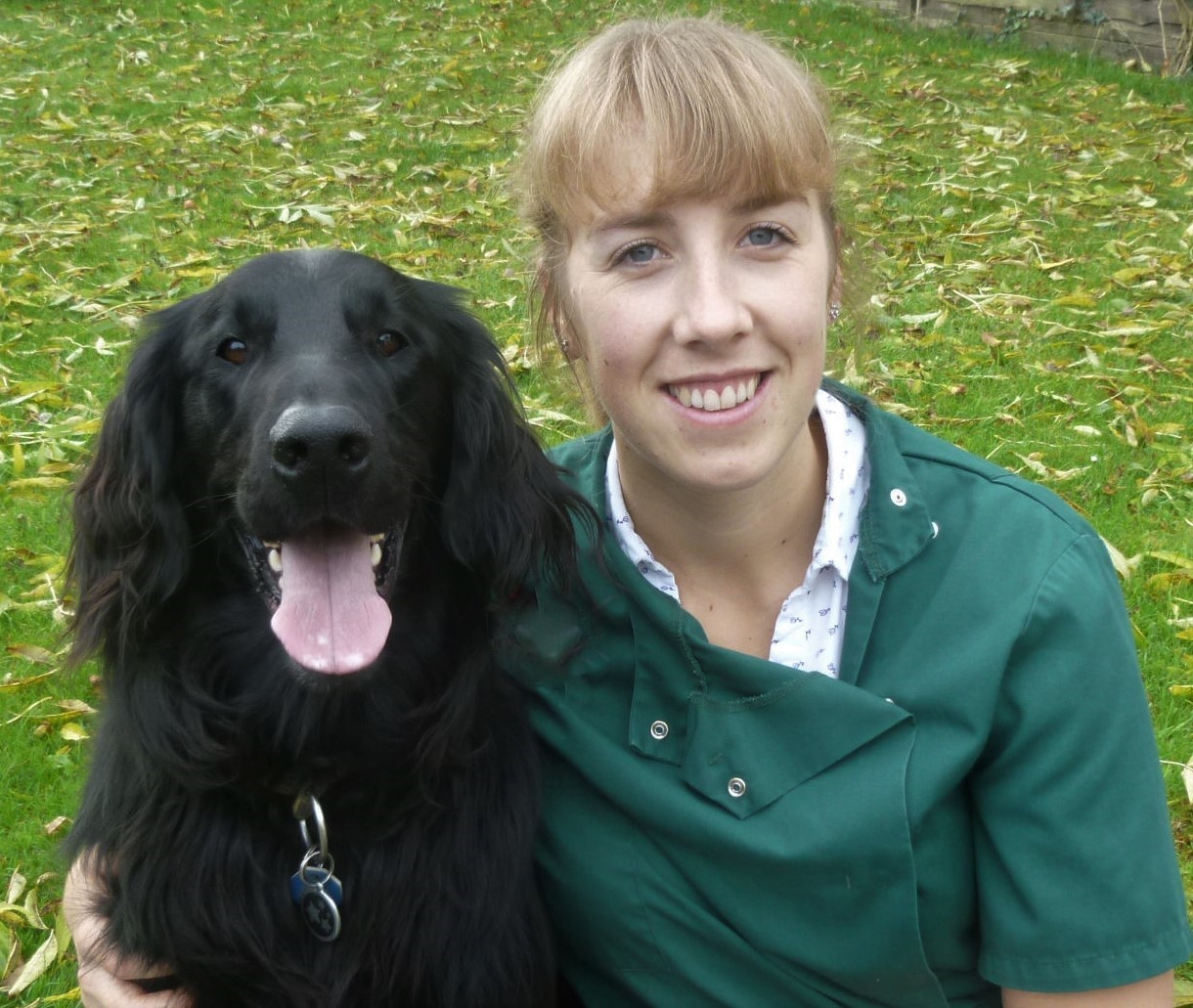Toy poodles are seriously clever canines that are up for pretty much anything
Tiny, brainy, and full of charm – meet the spirited toy poodle

Get the best advice, tips and top tech for your beloved Pets
You are now subscribed
Your newsletter sign-up was successful

Life expectancy: 12–18 years
Size: 9.4–11 inches (male); 9.4–11 inches (female)
Coat: Dense, curly
Temperament: Intelligent, agile, playful
Exercise needs: Up to an hour daily
Origin/native country: Germany
Toy poodles are the smallest of the poodle breeds (which also includes standard poodles and miniature poodles) but they’re huge characters. Possessing incredible intelligence, they’re always up for a trick or two and you can encourage them to do practically anything you wish. They’re also very playful and fun – and they’ll capture many hearts in the show ring.
But that’s not what they were originally bred for. Developed in Germany, poodles were bred as hunting dogs, specifically to be water retrievers for duck hunters, yet their cuteness saw them become popular pets. King Louis XVI of France loved them and many celebrities have taken them into their homes. But should you do the same? We take a look at this toy breed, with the help of expert vet Dr Rebecca MacMillan.
Does a toy poodle need a lot of exercise?
Toy poodles are active and they need to burn off energy each day but their small size means it won’t take long.
“Toy poodles need 30–60 minutes of exercise per day to keep them happy,” says Dr MacMillan. You should, however, seek to make the sessions varied.
Buying the best dog toys will help keep this breed physically and mentally stimulated – a must because these canines can become destructive if they’re bored. Toy poodles will enjoy a game of fetch or hide-and-seek with some tasty treats so try some fun games to play with dogs and, if you have a safe stretch of water available, be aware that this one’s among the dog breeds that are made for swimming.

Are toy poodles easy to train?
Toy poodles are super-intelligent – poodles actually rank second when it comes to the smartest dog breeds. This means they will need fewer than five repetitions to understand a new command and they’ll obey a first command 95% of the time or better.
To that end, they are really easy to train and you’ll find the task is thoroughly enjoyable because you’ll see results in what feels like record time. This is a dog that’ll take well to agility and obedience training, which is why they are popular show breed dogs.
Get the best advice, tips and top tech for your beloved Pets
“Toy poodles are very intelligent and responsive, which makes training relatively straightforward,” Dr MacMillan affirms. “You should start training them from an early age, and regular short sessions will help to keep them mentally stimulated and prevent boredom.”
Do toy poodles make good family pets?
Toy poodles are affectionate, gentle and patient, which makes them perfect playmates for children. Their small size means they are among the best dog breeds if you’re short on space and they will quickly adapt to your family’s lifestyle.
“Toy poodles make lovely family dogs because they are intelligent, playful and enjoy company,” says Dr MacMillan.
But there’s a caveat: you will need to ensure that young children are careful when playing because these small dogs can be easily injured. You should also be wary of introducing a toy poodle in a household with a larger dog for much the same reason.
“Toy poodles are a good choice for a home with small children if they are properly looked after,” Dr MacMillan says. “Children should be taught to handle them carefully and, as with any dog breed, they must be always supervised.”

Are toy poodles aggressive?
Not inherently, no. But you should be aware of a study, published in Nature, by researchers from the University of Helsinki in 2021 that found toy poodles were among the breeds with the highest odds of aggressive behavior.
Aggression was found to be affected by behavior, demography and environment, which is why good training is important. Don’t fall into the trap of not correcting aggressive behavior just because you think small dogs should be less threatening.
Do toy poodles need a lot of grooming?
Toy poodles are very high maintenance in terms of grooming. “Their thick, curly coat needs a lot of care to prevent it getting matted and most owners will take their dog to a groomer to be professionally clipped,” says Dr MacMillan. “This needs to be done approximately every six weeks, with regular brushing at home in between.”
Thankfully, poodles are among small dog breeds that don’t shed (much!). “That means they are considered hypoallergenic compared to other breeds,” Dr MacMillan says. “But the protein that triggers reactions is found in the dander, saliva and urine of dogs, so sensitive people could still react.”
Wisdom Panel Breed Discovery DNA Kit | Amazon
Not sure exactly what breed your dog is? This kit screens for 365+ breeds – because knowing every detail about your dog helps you understand how best to care for them.
Toy poodle health problems
Toy poodles are prone to several health conditions. Some of these can affect any small breed of dog and that includes dental disease.
“Toy poodles can suffer with excessive tartar build up, gum inflammation and tooth loosening,” Dr MacMillan says. “I’ve certainly had to extract many teeth from various toy poodles over the years. I always advise dog owners to implement oral care from a very young age, to try and prevent periodontal disease from developing.”
Toy poodles are also very susceptible to bladder stones.
“These can cause blood in the urine and discomfort when passing urine. Some dogs may require surgery to have them removed,” Dr MacMillan adds.
Like many pedigrees, this breed can suffer from inherited eye issues, including cataracts and progressive retinal atrophy (PRA).
“These can affect your dog’s vision, and lead to blindness. They can also suffer with problems like distichiasis [extra hairs rubbing on the surface of the eye] and entropion, rolling inwards of the eyelids,” Dr MacMillan continues.
Leg Calves Perthes Disease can be seen in toy poodles as well and it is often first diagnosed at around six to nine months of age.
“It is thought to be caused by reduced blood flow to the head of the femur, thereby affecting the ball part of the ball and socket joint,” Dr MacMillan says. “The bone then becomes brittle and can easily fracture. This condition is extremely painful.”
Should I get a toy poodle?
Toy poodles can be a real joy to be around and, given their ability to learn tricks, you can find them to be richly rewarding and fun companions. Despite their small size, you’ll be amazed at how intelligent and confident these dogs are and you will also be pleased that they get on amazingly well with children. They are also one of the longest living dog breeds, so you’ll be able to enjoy your friend for many years.
All of that said, there are some downsides. Toy poodles aren’t particularly ideal if you lead an active lifestyle and they can be prone to separation anxiety so they’re better within households that have someone around for much of the time. And while they don’t shed much, they do require a fair bit of grooming – although this may encourage you to enter your pet into a show.
The Complete Guide To Poodles | Amazon
Using interviews with nine top poodle breeders, this guide takes an in-depth look at what it really takes to successfully live with, raise, and train a poodle.
Read next: Poodle facts, toy poodle vs maltipoo, and more reasons to love poodles

Rebecca is a veterinary surgeon who graduated in 2009 from the Royal Veterinary College in London. She has a wealth of experience in first opinion small animal practice, having done a mixture of day-to-day routine work, on-call emergency duties and managerial roles over the years. Rebecca enjoys medicine in particular and she is proud to have recently achieved a BSAVA postgraduate certificate in small animal medicine (with commendation).
She writes on various feline and canine topics, including behavior, nutrition, and health. Outside of work and writing she enjoys walking her own dog, spending time with her young family and baking!
Edited by Georgia Guerin.
This feature was last updated on March 3, 2025.

David Crookes has been a journalist for almost 30 years and he has written for a host of magazines, newspapers, websites and books including the World of Animals Annual, BBC Earth, Live Science, The Independent and Tom’s Guide.
Born in England, he lives with two cats but he’s also keenly interested in the differences between the huge number of dog breeds – in fact, you can read many of his breed guides that he’s written in collaboration with vets here on PetsRadar.
With a lifelong passion for technology, too, he’s always on the lookout for useful devices that will allow people to keep their pets happier and healthier, and provide them more time to spend together.
David has a degree from Durham University, as well as postgraduate diploma in journalism from the University of Central Lancashire.


